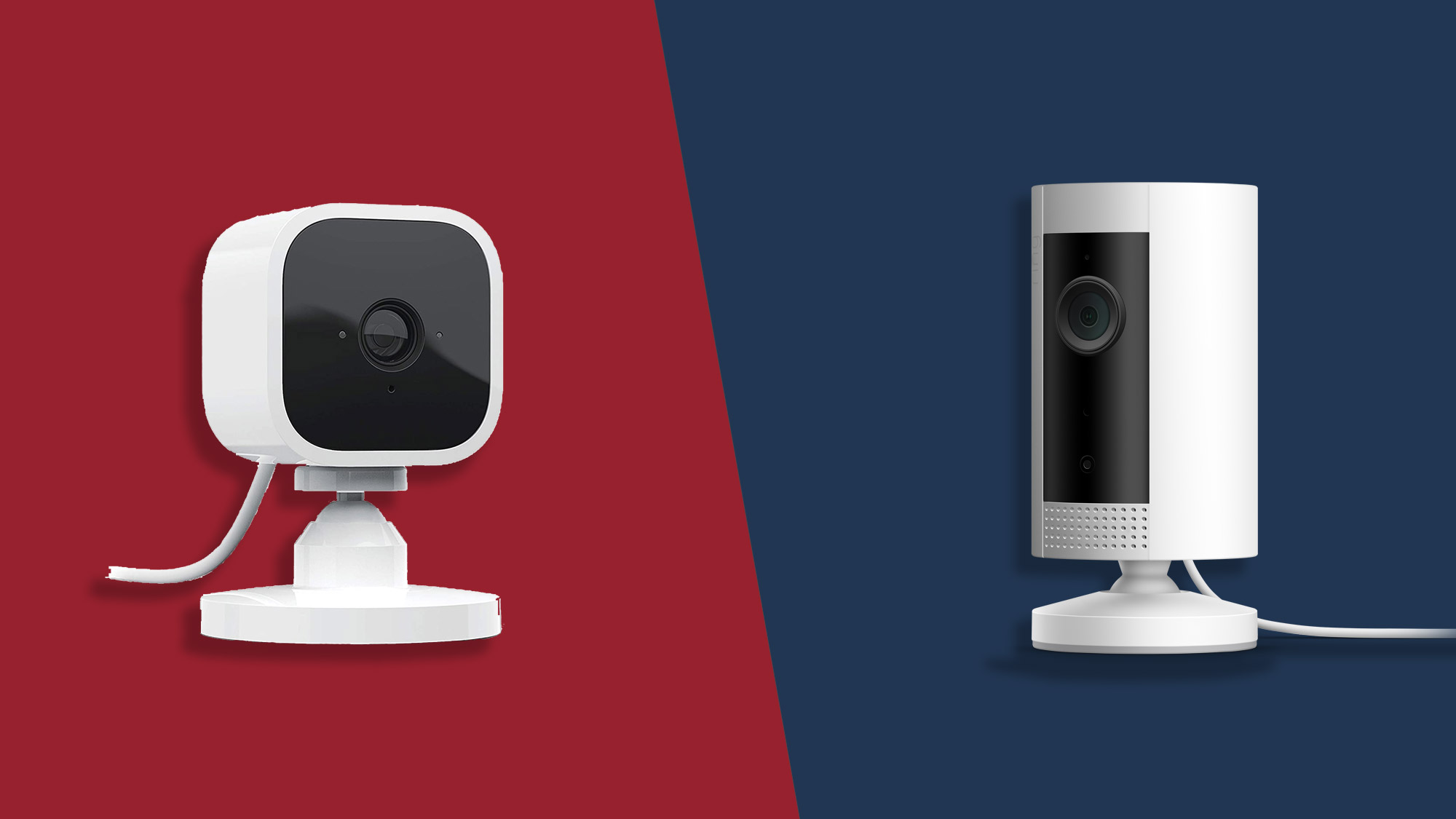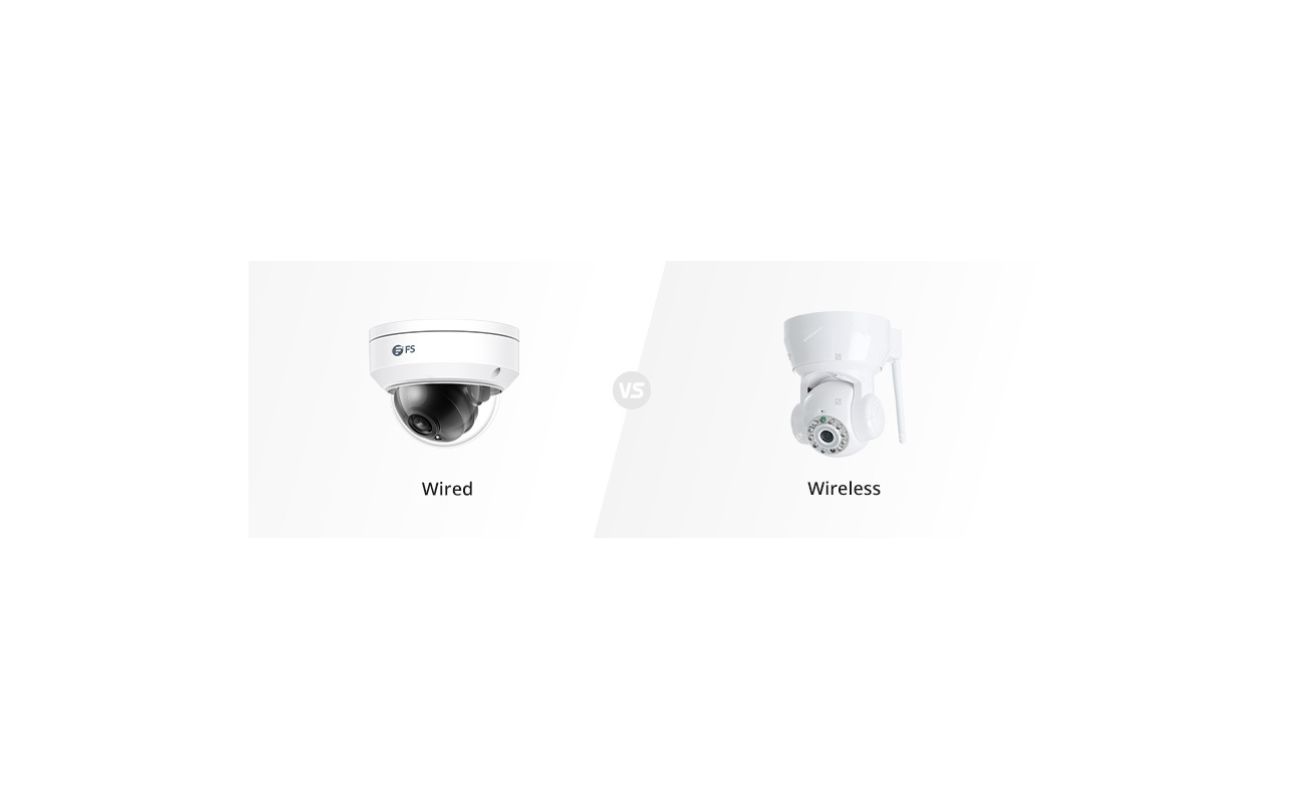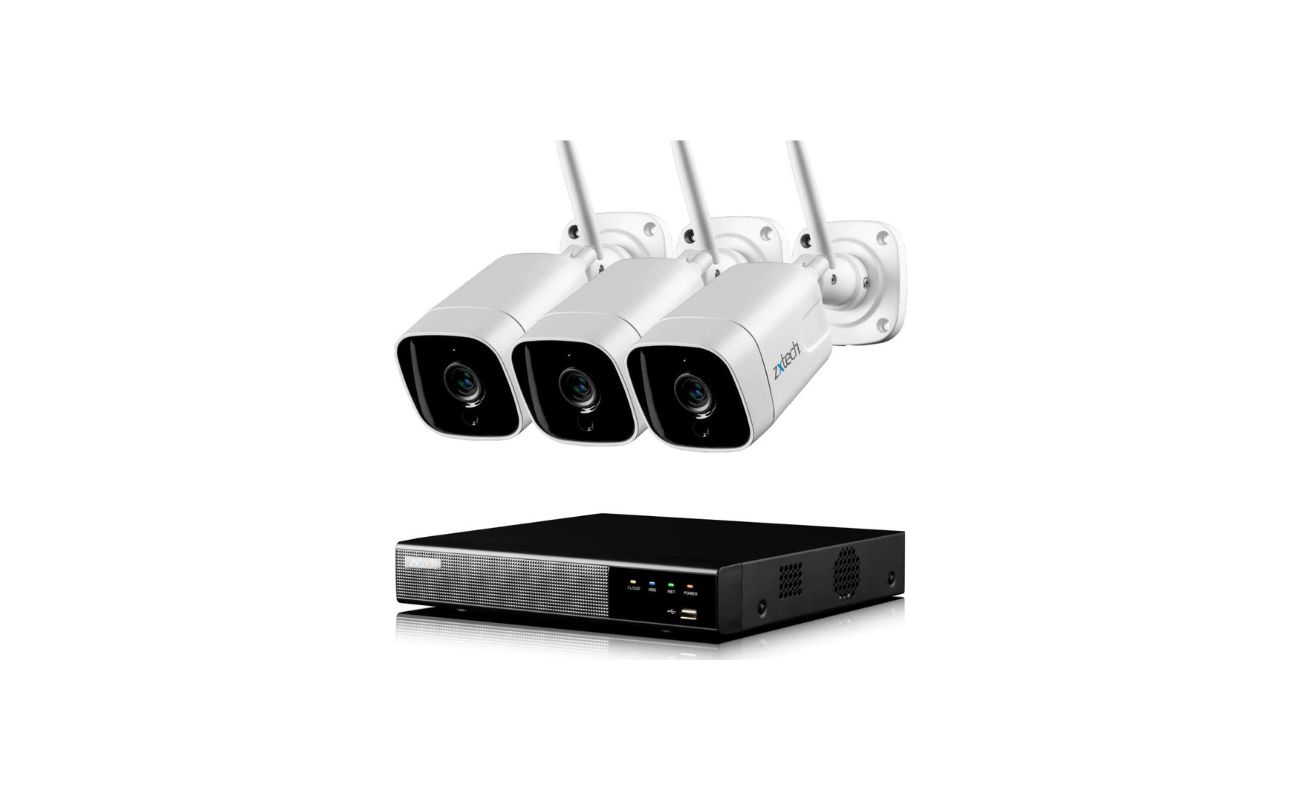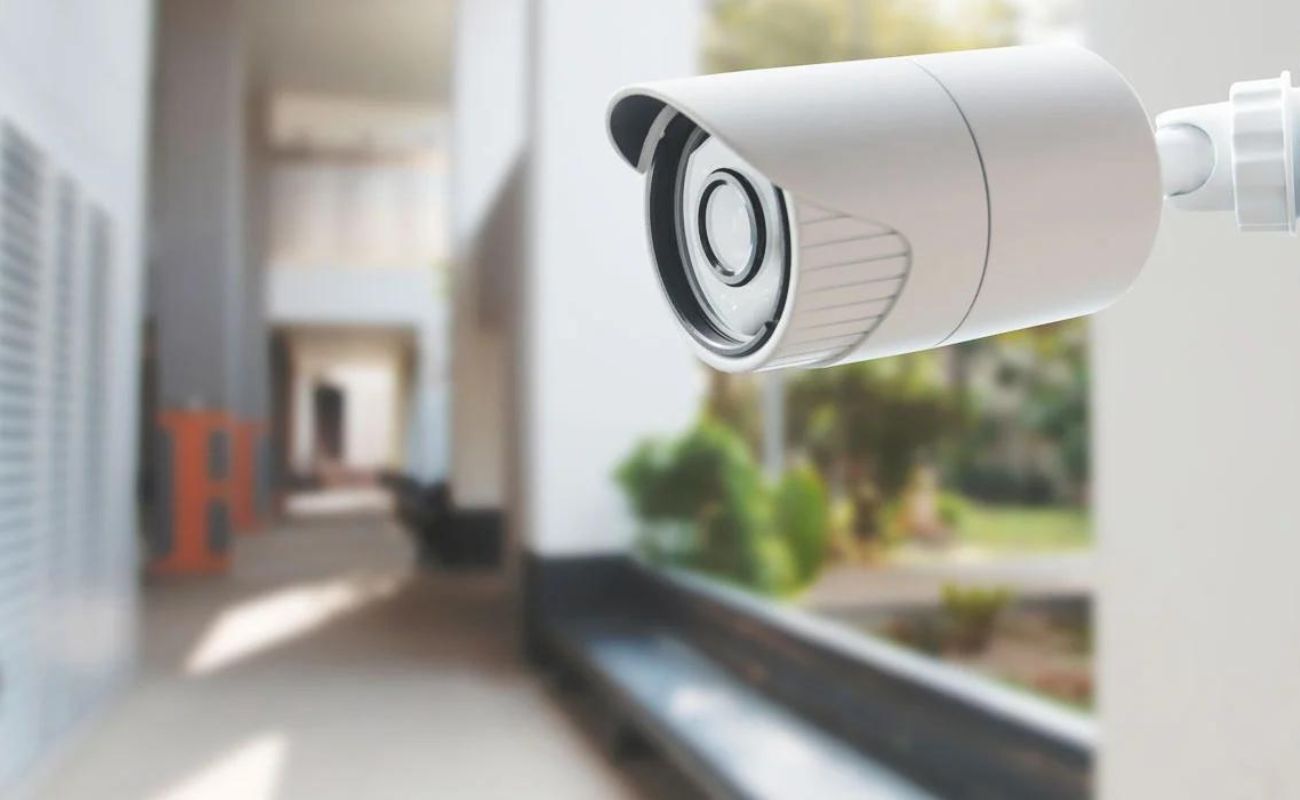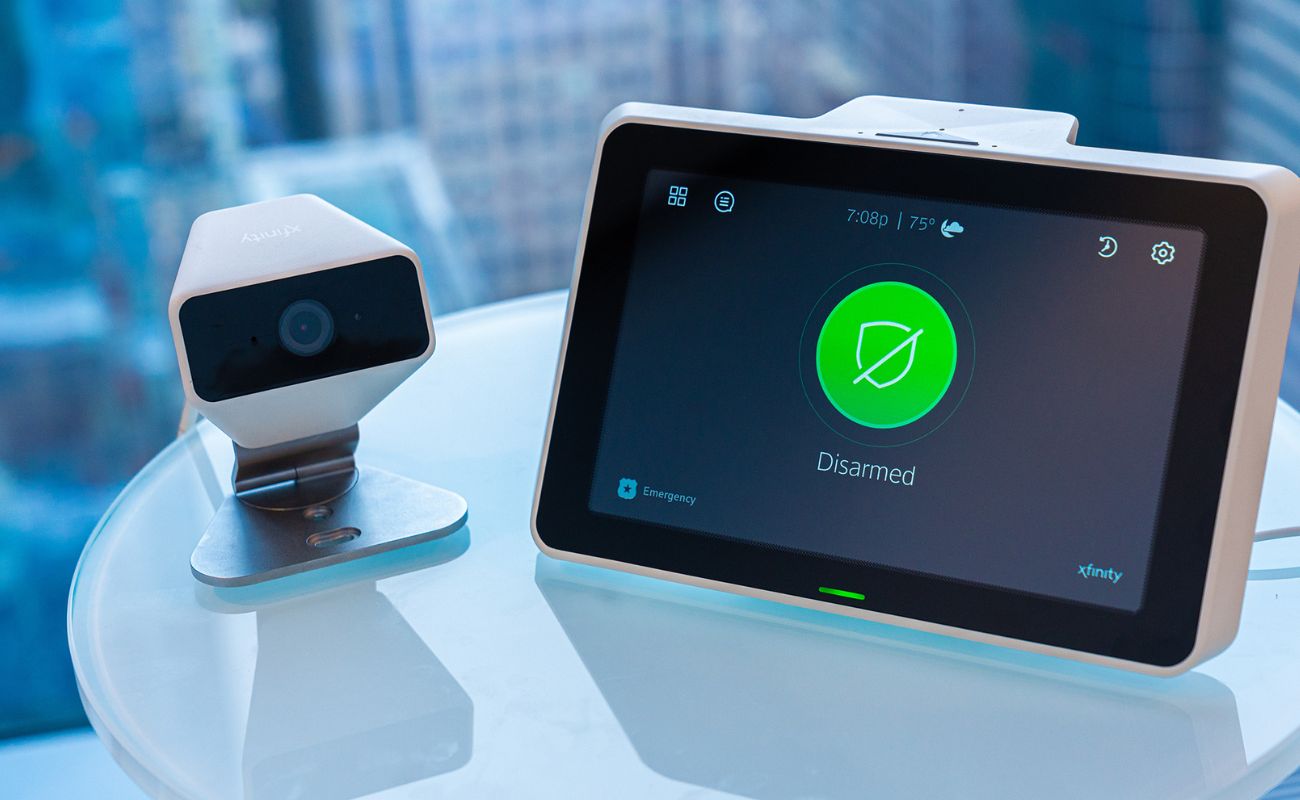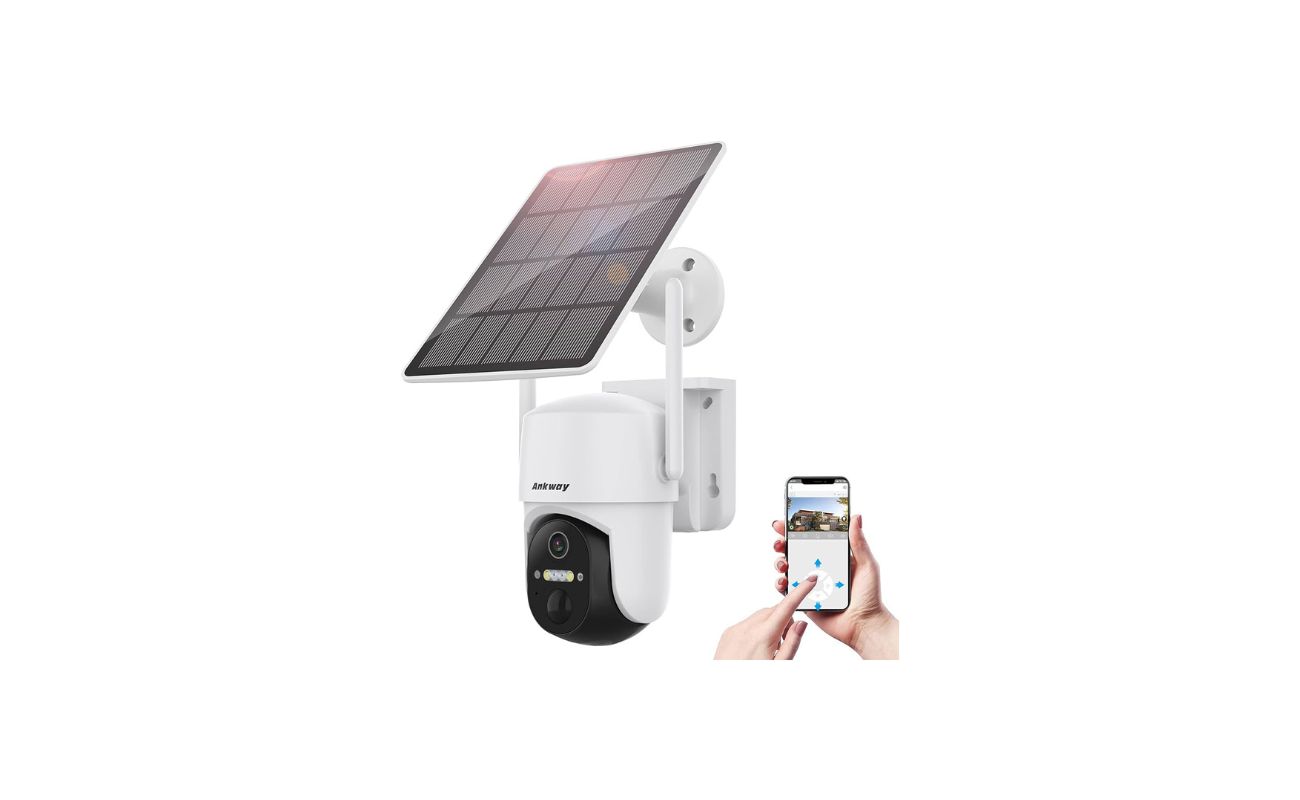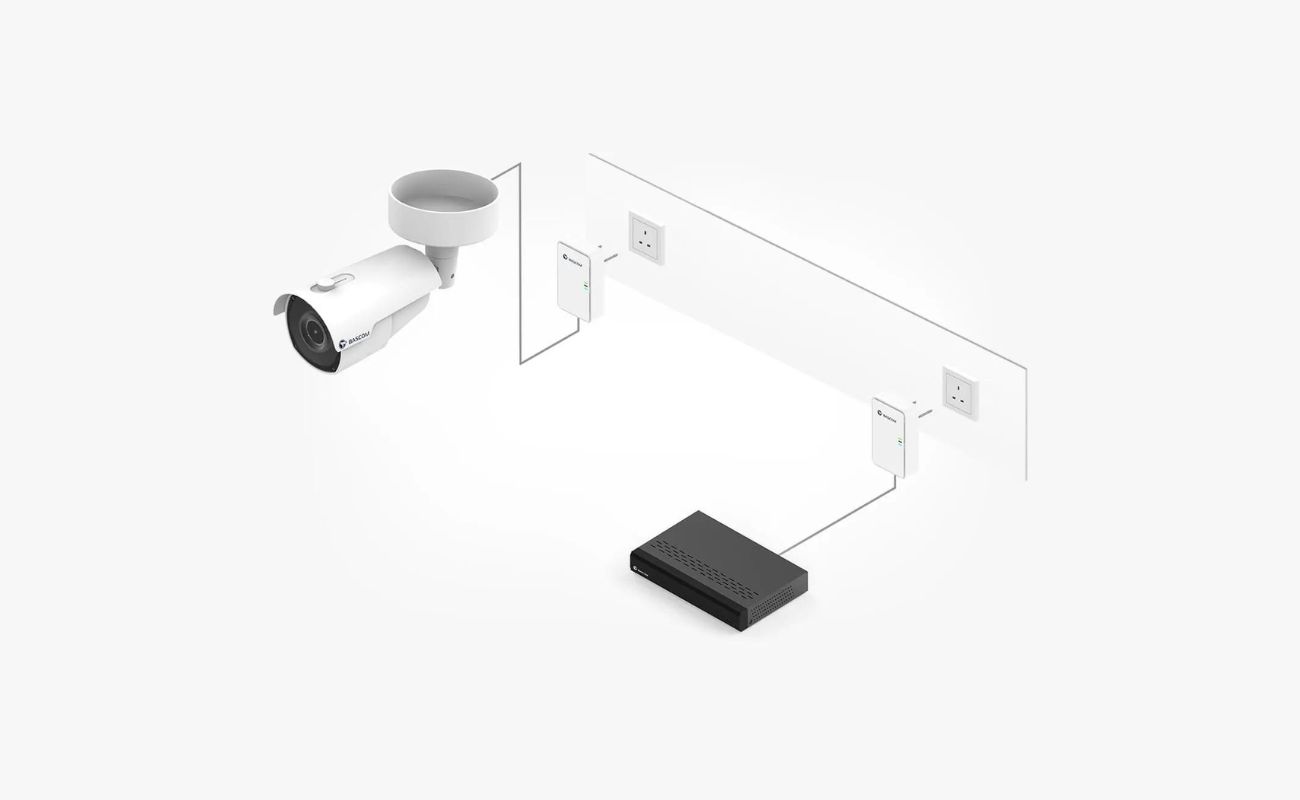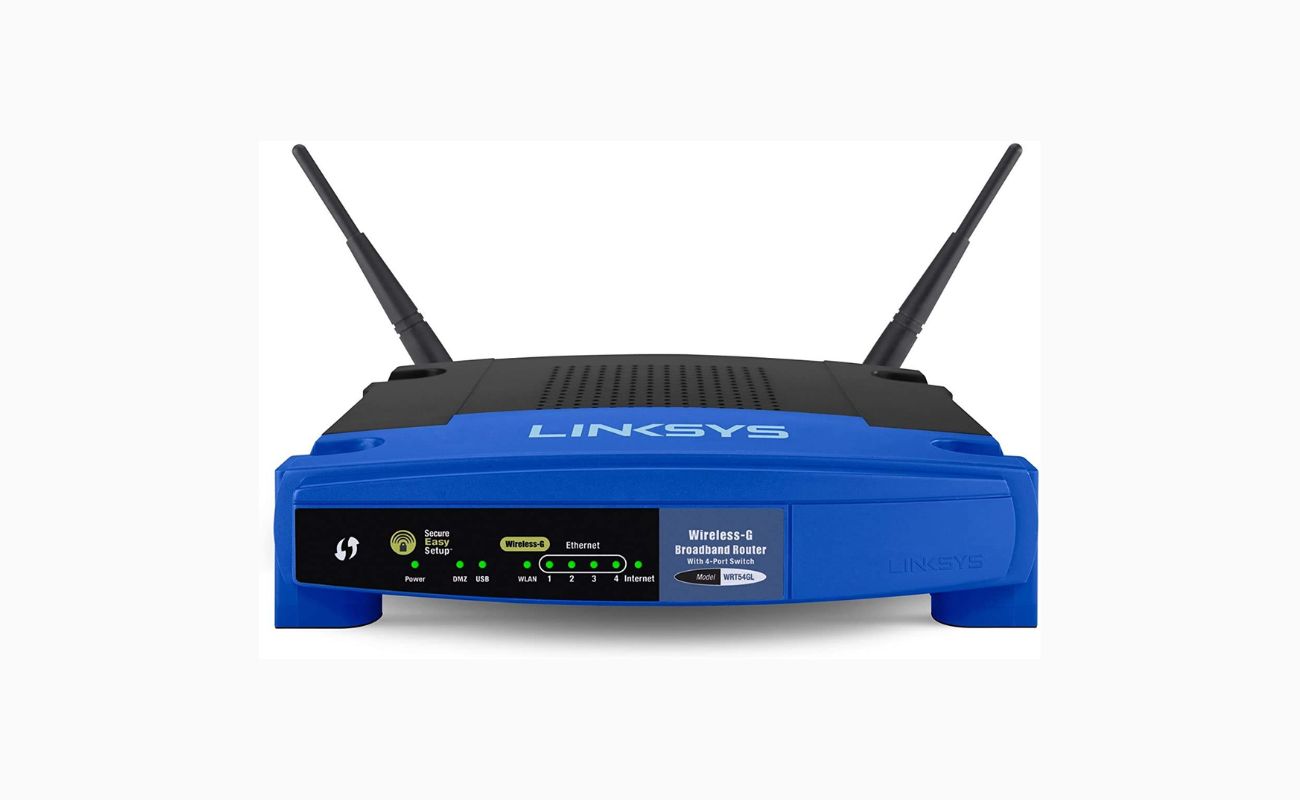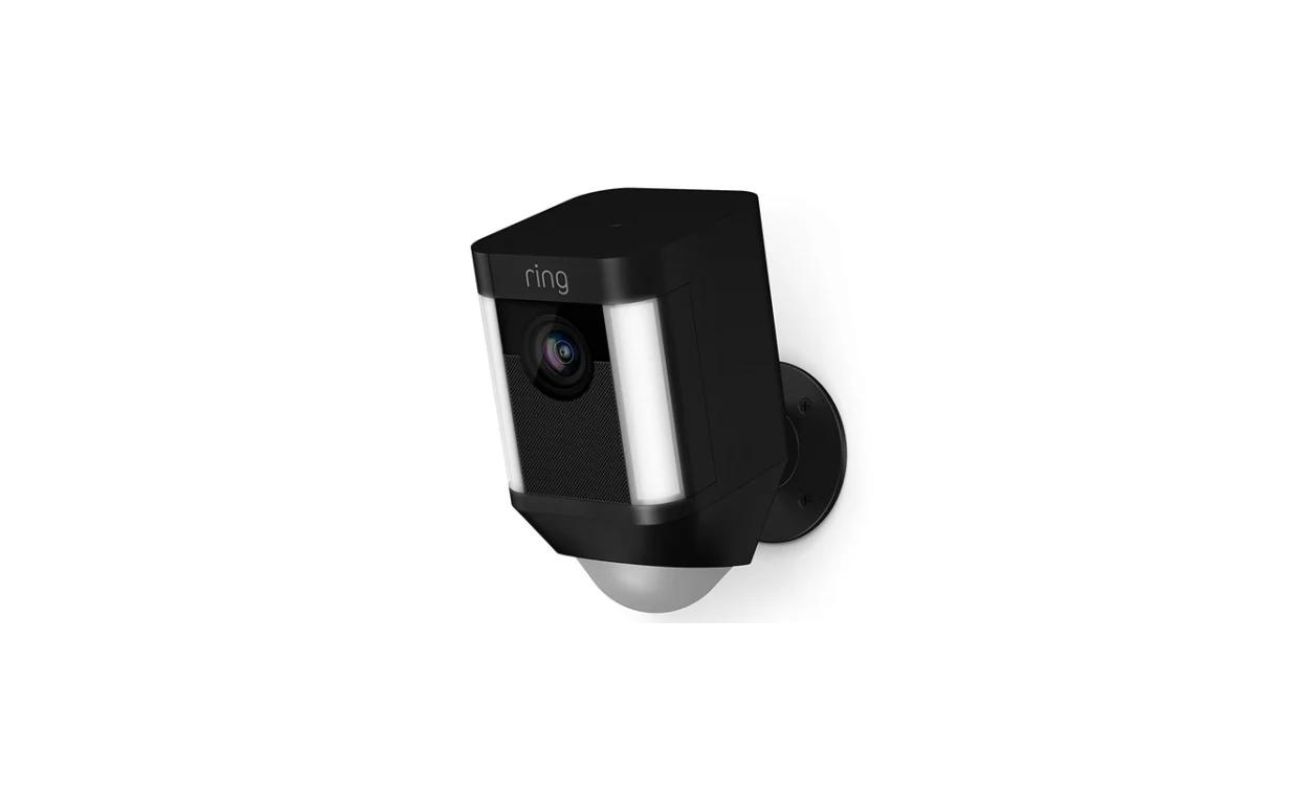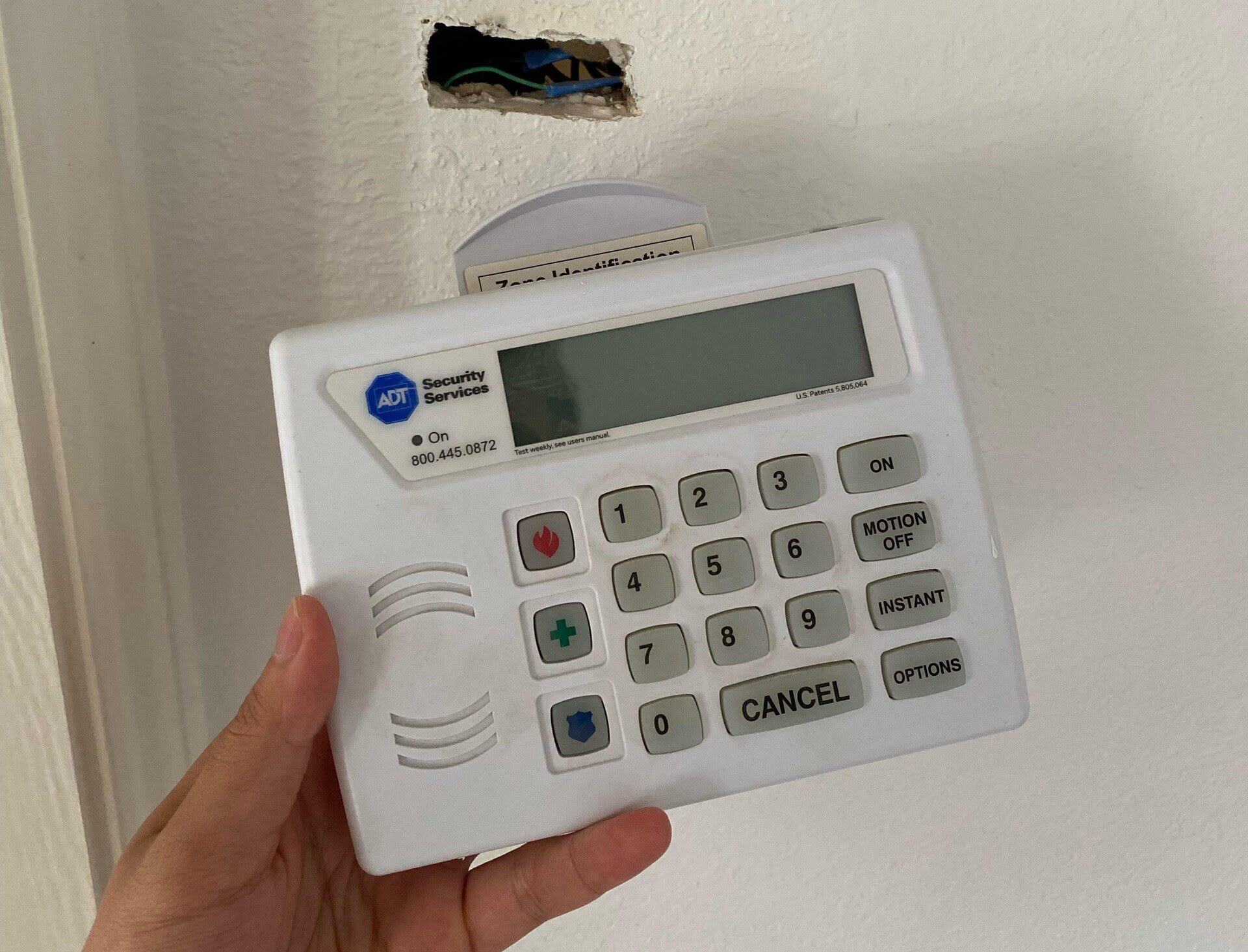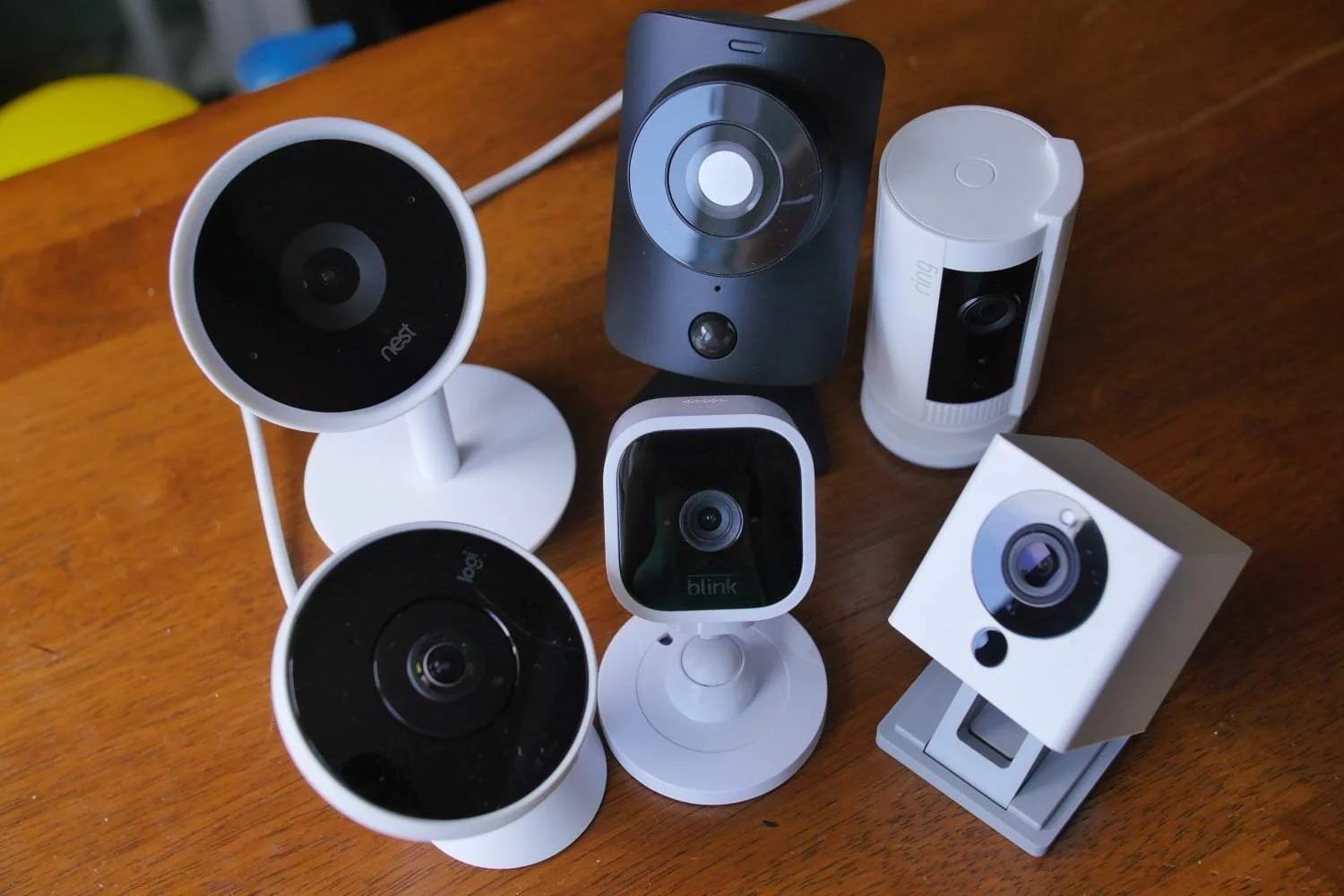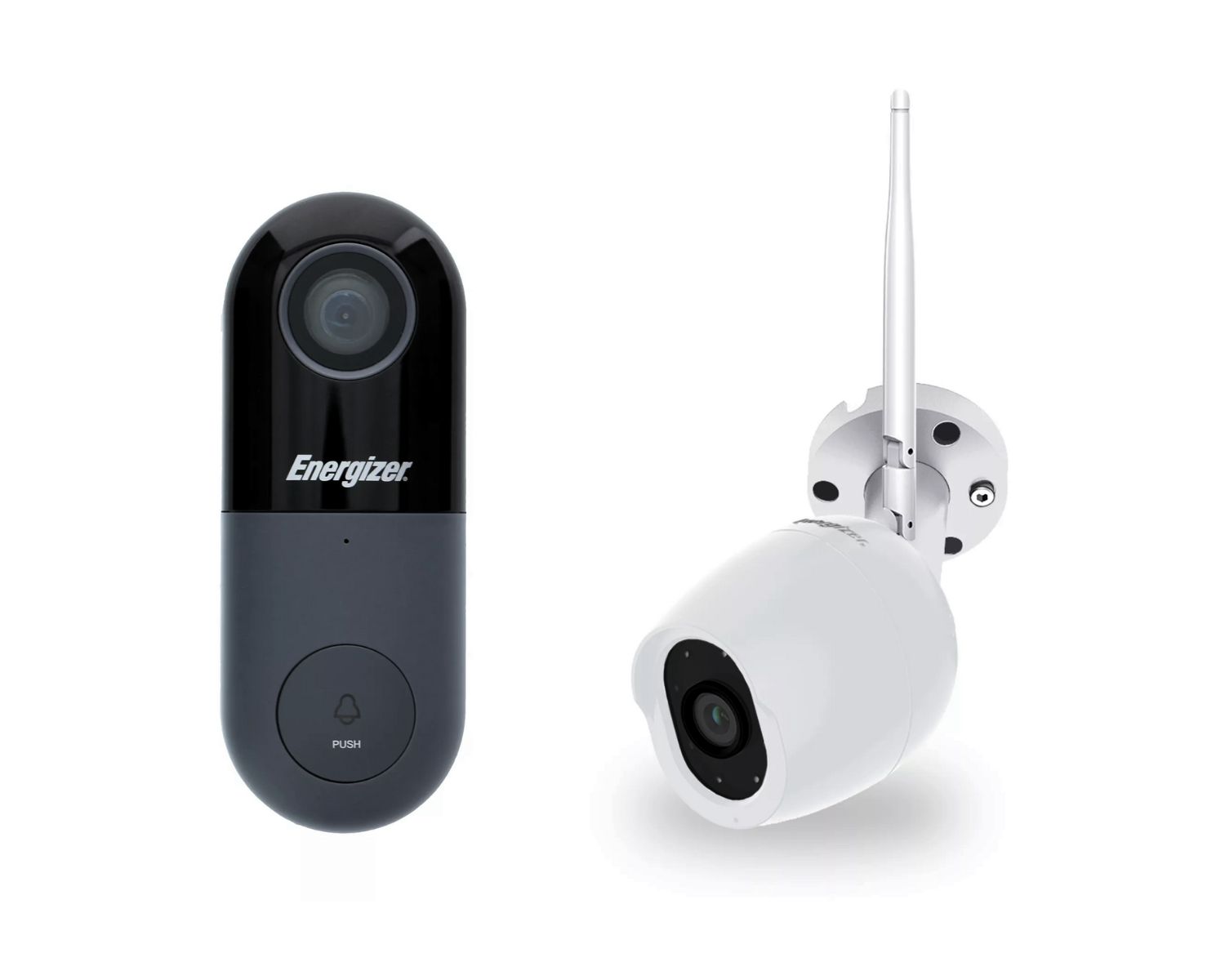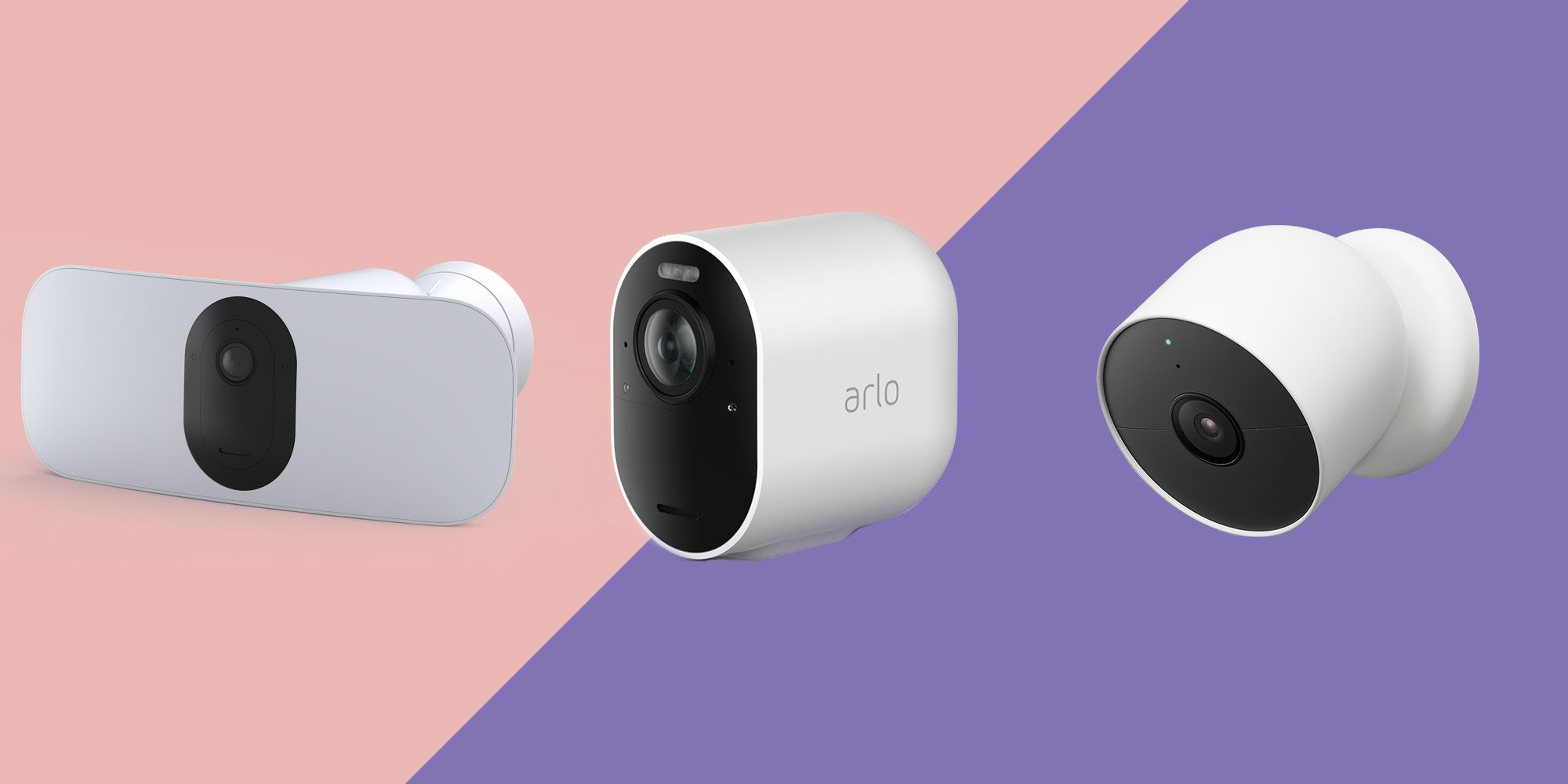Home>Home Security and Surveillance>Which Is Better: Wired Or Wireless Security Camera
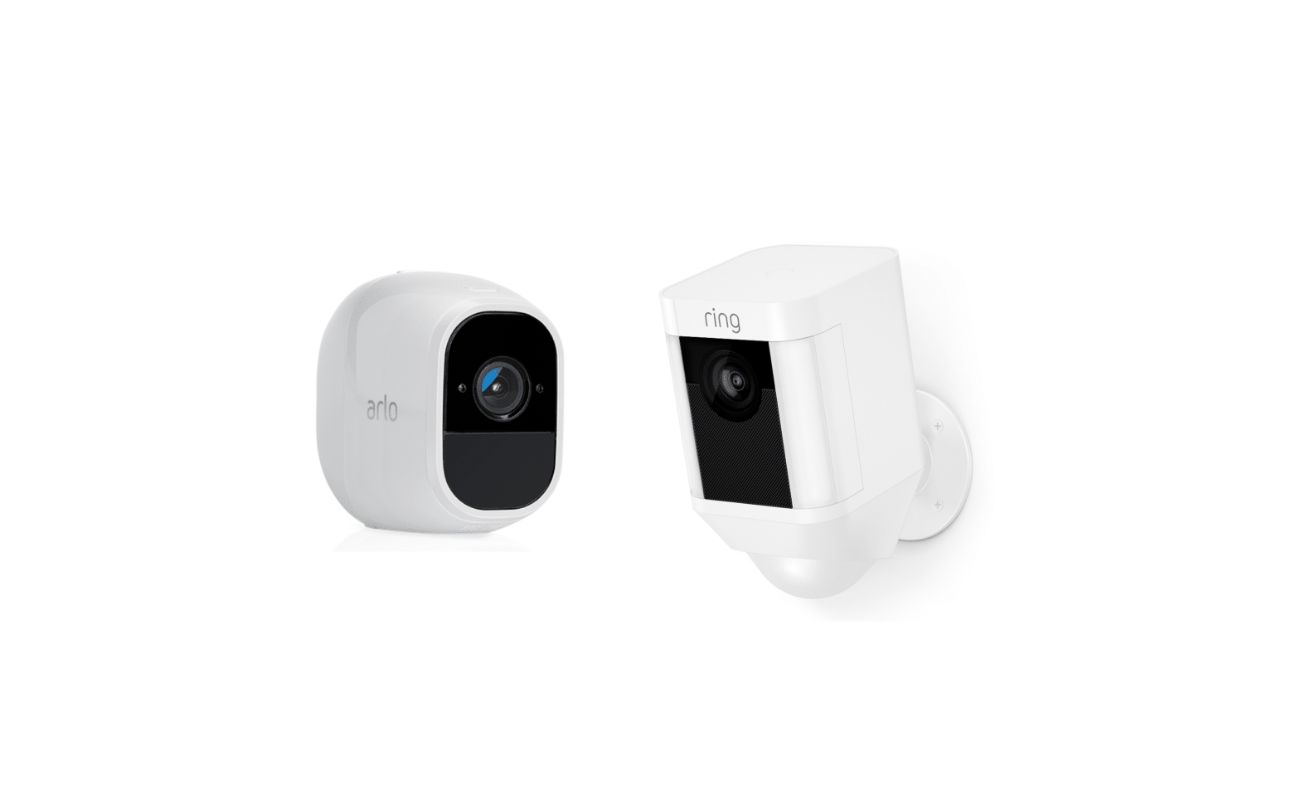

Home Security and Surveillance
Which Is Better: Wired Or Wireless Security Camera
Modified: March 6, 2024
Discover the pros and cons of wired and wireless security cameras for your home security and surveillance. Choose the best option to protect your property.
(Many of the links in this article redirect to a specific reviewed product. Your purchase of these products through affiliate links helps to generate commission for Storables.com, at no extra cost. Learn more)
Introduction
Welcome to the world of home security and surveillance. Ensuring the safety and protection of your home and loved ones is a top priority for anyone. With advancements in technology, the options for home security systems have expanded, providing you with a wide range of choices to meet your specific needs.
One of the key components of any home security system is the surveillance camera. Having a reliable camera system in place can help deter potential intruders and provide you with peace of mind knowing that your property is being monitored.
When it comes to surveillance cameras, there are two main types to consider: wired and wireless. Each type has its own unique advantages and limitations. In this article, we will delve into the details of both wired and wireless security cameras, exploring their features and helping you determine which option is best suited for your home.
As you read on, you will discover the benefits and drawbacks of each type of camera system and gain insight into the factors you should consider when making a decision. By the end, you will have a better understanding of whether wired or wireless security cameras are the right choice for you.
Key Takeaways:
- Wired security cameras offer stable video quality and reliability, making them ideal for areas with weak Wi-Fi signals and long-distance surveillance needs. They require professional installation and have higher upfront costs.
- Wireless security cameras provide easy installation, flexibility, and remote access capabilities. They are suitable for DIY enthusiasts and renters but depend on a stable Wi-Fi network and may require regular battery maintenance.
Overview of Wired Security Cameras
Wired security cameras, as the name suggests, are connected to the surveillance system through physical cables. These cameras require a direct connection to a power source and the recording device, typically a DVR (Digital Video Recorder) or NVR (Network Video Recorder). The cables, usually made of coaxial or Ethernet, transmit both power and video signals to ensure high-quality and uninterrupted surveillance.
Wired security cameras are known for their reliability and stability. Since they are physically connected to the system, they do not rely on wireless signals, making them less susceptible to interference or signal loss. This makes them a preferred choice for areas with weak or inconsistent Wi-Fi signals.
With a wired camera system, you can achieve long-distance surveillance without any degradation in video quality. The cables can span considerable distances, allowing you to install cameras in remote areas of your property. Additionally, wired cameras operate on a dedicated power source, eliminating the need for frequent battery replacements.
These cameras often provide a variety of advanced features such as pan, tilt, and zoom capabilities, enabling you to adjust the camera’s field of view and focus on specific areas of interest. They also offer superior image quality, especially in low-light conditions, as they can be equipped with powerful IR (infrared) LEDs for night vision.
However, it’s important to note that installing wired security cameras requires professional assistance or a good understanding of electrical wiring. The cables need to be concealed or placed in secure conduits to prevent tampering or damage. This means you may need to invest in additional installation costs, especially if you’re retrofitting your home with a wired camera system.
In summary, wired security cameras offer reliability, stability, and superior image quality. They are ideal for areas with poor Wi-Fi connectivity and provide greater flexibility in terms of distance and power supply. While the initial installation cost may be higher, the long-term benefits make them a popular choice among homeowners and businesses alike.
Advantages of Wired Security Cameras
Wired security cameras offer several advantages that make them a compelling choice for homeowners and businesses seeking robust surveillance solutions. Let’s take a closer look at the key benefits of opting for wired security cameras:
- Reliability: Wired cameras provide a reliable connection as they are not dependent on wireless signals. This eliminates concerns about signal interference or interruptions, ensuring that your surveillance system remains functional at all times.
- Stable Video Quality: With a direct and dedicated connection, wired cameras can deliver stable and consistent video quality. You can expect crystal-clear images, even over long distances, without any degradation or loss in video signal.
- Long-Distance Surveillance: Wired cameras can be installed over significant distances without sacrificing video quality. This makes them an ideal choice for monitoring large areas, such as expansive properties, parking lots, or commercial buildings.
- Power Supply: Unlike wireless cameras that rely on batteries or solar power, wired cameras operate on a constant power source. This eliminates the need for recharging batteries or worrying about solar panel placement, ensuring continuous surveillance coverage.
- Advanced Features: Wired security cameras often come with a range of advanced features, such as pan, tilt, and zoom capabilities. These features provide greater flexibility in adjusting the camera’s field of view and focusing on specific areas or objects of interest.
- Superior Night Vision: Wired cameras can be equipped with powerful infrared (IR) LEDs to provide exceptional night vision capabilities. This allows for clear monitoring and recording even in complete darkness, ensuring reliable surveillance around the clock.
Overall, wired security cameras offer reliability, stability, and superior video quality. They are an excellent choice for areas with weak Wi-Fi connectivity or in situations where long-distance surveillance is required. While the installation process may require professional assistance, the long-term benefits make wired cameras a highly effective and dependable solution for home and business security.
Limitations of Wired Security Cameras
While wired security cameras have numerous advantages, it’s important to consider their limitations as well. Understanding these limitations will help you make an informed decision when choosing the right surveillance system for your needs. Here are some aspects to keep in mind:
- Installation Complexity: Installing wired security cameras can be more complex and time-consuming compared to their wireless counterparts. It often requires professional assistance or a good understanding of electrical wiring. The process may involve drilling holes, concealing cables, and connecting them to a central recording device.
- Higher Installation Cost: Due to the complexity involved, wired camera systems typically come with higher installation costs. You may need to invest in additional equipment, such as cables, conduits, and connectors. If you are retrofitting your home, it may require specialized expertise and potentially increase the overall expense.
- Limited Flexibility: Once the wired cameras are installed, their location becomes fixed, as they are physically connected to the surveillance system. This can limit the flexibility to move or adjust the cameras based on changing surveillance needs. Additional wiring may be required if you decide to relocate or add cameras in the future.
- Vulnerability to Power Outages: While wired cameras do not rely on batteries, they are still susceptible to power outages. In the event of a power failure, the cameras will cease to function unless backup power sources, such as uninterruptible power supplies (UPS), are in place.
- Potential Cable Damage: The cables used for wired cameras are prone to physical damage. They may be accidentally cut or tampered with, affecting the functionality of the surveillance system. Proper cable management and protection measures need to be implemented to minimize the risk of cable damage.
Despite these limitations, wired security cameras remain a reliable and effective option for many homeowners and businesses. Considering these factors alongside the benefits will help you determine whether a wired camera system aligns with your specific requirements and budget.
Overview of Wireless Security Cameras
Wireless security cameras have gained popularity in recent years due to their convenience and ease of installation. Unlike wired cameras, wireless cameras do not require physical cables to connect to the recording device. Instead, they utilize wireless technology, such as Wi-Fi or Bluetooth, to transmit video and audio signals.
Wireless security cameras offer a flexible and versatile solution for home surveillance. They can be easily installed and moved to different locations without the need for extensive wiring. This makes them an ideal choice for renters or those who prefer a DIY installation process.
These cameras are powered either by batteries or through a power source, depending on the model. Battery-powered wireless cameras provide the convenience of placement without relying on a nearby power outlet. However, it’s important to monitor battery life and replace or recharge them as needed.
Wireless cameras offer a wide range of features and functionalities to enhance your home security. Many models support remote access, allowing you to view live video feeds and recordings from your smartphone or computer, even while you’re away from home. This provides peace of mind and the ability to monitor your property in real-time.
Another advantage of wireless cameras is their scalability. You can easily add or expand your surveillance system by integrating additional wireless cameras into your network. This allows for customizable coverage that can adapt to your evolving security needs.
It’s important to note that wireless cameras rely on a stable and secure Wi-Fi connection for optimal performance. Areas with weak or unreliable Wi-Fi signals may result in intermittent video streaming, delay in notifications, or even loss of connection. It’s crucial to ensure a robust Wi-Fi network is in place to support your wireless camera system.
Overall, wireless security cameras offer convenience, flexibility, and scalability. They are a popular choice for homeowners who prioritize ease of installation and mobility. With advancements in technology, wireless cameras have become increasingly reliable and feature-rich, providing effective home surveillance solutions.
When choosing between wired and wireless security cameras, consider the reliability and stability of a wired connection versus the convenience and flexibility of a wireless connection. Evaluate your specific needs and priorities to determine which option is better for your situation.
Advantages of Wireless Security Cameras
Wireless security cameras offer several advantages that make them an attractive option for home surveillance. Let’s explore the key benefits of choosing wireless cameras:
- Easy Installation: Wireless cameras are incredibly easy to install. Without the need for extensive wiring, you can simply mount them in desired locations, connect them to your Wi-Fi network, and they’re ready to go. This makes them a popular choice for DIY enthusiasts or renters who may not have permission to make significant modifications to their property.
- Flexibility and Mobility: Wireless cameras provide flexibility in terms of placement. You can easily move them around or reposition them based on changing surveillance needs. This flexibility allows you to adapt your security system to different areas of your home or property as required.
- Remote Access: Many wireless cameras offer remote access functionality. With a stable internet connection, you can view live video feeds and recordings from anywhere using your smartphone, tablet, or computer. This enables you to monitor your property in real-time, enhancing the level of security and providing peace of mind.
- Scalability: Wireless camera systems can be easily expanded by adding additional cameras to your existing network. Whether you want to increase coverage of your property or monitor different areas, you can seamlessly integrate new cameras into your system without the need for extensive reconfiguration.
- Power Source Options: Wireless cameras can be powered either by batteries or through a power source. Battery-powered cameras offer the advantage of flexible placement without the need for a nearby power outlet. On the other hand, cameras that are powered through a power source eliminate the need for battery replacement or recharging, providing constant surveillance coverage.
- Minimal Cable Clutter: Since wireless cameras operate without physical cables, they eliminate the need for extensive wiring and cable management. This helps maintain a clean and clutter-free installation, enhancing the aesthetic appeal of your property.
Wireless security cameras offer convenience, flexibility, and remote access capabilities. These features make them an excellent choice for those seeking an easy-to-install and versatile surveillance solution. With advancements in technology, wireless cameras have become increasingly reliable, making them a popular option for homeowners looking to enhance their home security.
Limitations of Wireless Security Cameras
While wireless security cameras have numerous advantages, it’s important to consider their limitations as well. Understanding these limitations will help you make an informed decision when choosing the right surveillance system for your needs. Here are some aspects to consider:
- Dependence on Wi-Fi: Wireless cameras rely on a stable Wi-Fi connection to transmit video and audio signals. If you have a weak or unreliable Wi-Fi network, it can lead to intermittent video streaming, delays in notifications, or even loss of connection. It’s crucial to have a robust and uninterrupted Wi-Fi signal to ensure consistent performance.
- Limited Range: Wireless cameras operate within a specific wireless range, which can vary depending on the camera model and environmental factors such as walls and other obstructions. If your property is extensive or has areas far from the Wi-Fi router, you may experience reduced signal strength or connectivity issues. In such cases, you may need to install additional Wi-Fi range extenders or consider a wired camera solution for better coverage.
- Battery Life: Battery-powered wireless cameras offer flexibility in terms of placement but require regular battery maintenance. Depending on usage and camera features, batteries may need to be replaced or recharged periodically. Failure to monitor and address battery life can result in gaps in surveillance coverage.
- High Bandwidth Usage: Streaming high-quality video requires significant bandwidth. If you have multiple wireless cameras in your system, it can put a strain on your Wi-Fi network, potentially affecting other devices’ performance. It’s important to ensure that your internet plan can handle the bandwidth requirements of your camera system.
- Susceptibility to Interference: Wireless signals can be susceptible to interference from other devices operating on the same frequency. This includes devices like microwave ovens, baby monitors, and cordless phones. Interference can disrupt the video signal or cause intermittent connection issues, so it’s important to choose wireless cameras that operate on less congested frequency bands.
- Vulnerability to Hacking: Wireless cameras connected to the internet can be susceptible to hacking attempts if not properly secured. It’s crucial to follow best practices for securing your Wi-Fi network, such as using strong passwords, enabling network encryption, and keeping firmware up to date to minimize the risk of unauthorized access.
Considering these limitations alongside the advantages will help you determine whether wireless cameras are the right choice for your home security needs. By evaluating your specific requirements and assessing the feasibility of addressing these limitations, you can make an informed decision to ensure the optimal surveillance solution for your property.
Factors to Consider when Choosing between Wired and Wireless Security Cameras
When deciding between wired and wireless security cameras for your home, there are several important factors to consider. Each type of camera system has its own advantages and limitations, so evaluating these factors will help you make an informed decision based on your specific needs:
- Installation Complexity: Consider whether you have the necessary skills and resources for a wired camera installation, which can be more complex and time-consuming compared to wireless cameras. If you prefer a simple DIY installation process, wireless cameras may be the better choice.
- Reliability and Stability: Assess the stability of your Wi-Fi network and the reliability of the power supply in your area. If you have a weak Wi-Fi signal or frequent power outages, wired cameras may be more suitable as they are less dependent on wireless connectivity and can operate on a constant power source.
- Distance Coverage: Consider the distance between your surveillance areas and the central recording device. Wired cameras are better suited for long-distance surveillance without compromising video quality. If you have large outdoor areas or need to monitor remote locations, wired cameras may be the preferred choice.
- Flexibility and Mobility: Evaluate how often you may need to adjust or relocate your cameras. If you require flexible placement and the ability to move cameras easily, wireless cameras provide more convenience compared to wired cameras with their physical cable connections.
- Power Source: Determine whether you prefer the convenience of battery-powered cameras or the stability of wired cameras that are directly connected to a power source. Battery-powered wireless cameras offer flexibility in placement but require regular battery maintenance.
- Budget and Cost: Consider the upfront costs of the camera system, including the cameras, cables, and any additional equipment required for installation. Wired camera systems often require professional installation, which can incur higher costs. On the other hand, wireless cameras may have a higher initial equipment cost, but installation is typically more straightforward.
- Maintenance and Upkeep: Assess the level of maintenance required for each type of camera system. Wired cameras generally require less maintenance as they are not reliant on batteries, while wireless cameras may require regular battery replacements or recharging.
- Security and Privacy: Take into account the potential security vulnerabilities of wireless cameras connected to the internet. Ensure you follow best practices for securing your network to minimize the risk of unauthorized access to your cameras or recordings.
By carefully considering these factors, you can determine whether wired or wireless security cameras best meet your specific requirements. It’s important to evaluate the trade-offs between convenience, reliability, installation complexity, and overall functionality to select the surveillance system that will provide optimal security coverage for your home.
Conclusion
Choosing the right security camera system for your home is crucial for ensuring the safety and protection of your property and loved ones. Wired and wireless security cameras each have their own set of advantages and limitations, and understanding these factors is essential in making an informed decision.
Wired security cameras offer reliability, stability, and superior video quality. They are suitable for areas with weak Wi-Fi signals, provide long-distance surveillance capabilities, and are less vulnerable to interference. However, they require professional installation and may have higher upfront costs and limited flexibility in camera placement.
On the other hand, wireless security cameras provide convenience, flexibility, and easy installation. They are ideal for DIY enthusiasts, renters, and those who require mobility and adaptability in camera placement. Wireless cameras also offer remote access capabilities, scalability, and minimal cable clutter. However, they depend on a stable Wi-Fi network, have limited range, and may require regular battery maintenance.
When deciding between wired and wireless security cameras, factors such as installation complexity, distance coverage, power source preference, budget, and maintenance requirements should be carefully considered. Additionally, evaluating the reliability of your Wi-Fi network and power supply, as well as addressing potential security vulnerabilities, is essential.
Ultimately, the choice between wired and wireless security cameras will depend on your specific needs, preferences, and the unique characteristics of your property. It may be beneficial to consult with security professionals or knowledgeable experts to assist you in selecting the most suitable surveillance system.
Remember, investing in a high-quality and reliable security camera system is an investment in the safety and well-being of your home. By carefully considering the advantages and limitations of wired and wireless security cameras, you can make an informed decision and create a secure environment for you and your loved ones.
Frequently Asked Questions about Which Is Better: Wired Or Wireless Security Camera
Was this page helpful?
At Storables.com, we guarantee accurate and reliable information. Our content, validated by Expert Board Contributors, is crafted following stringent Editorial Policies. We're committed to providing you with well-researched, expert-backed insights for all your informational needs.

